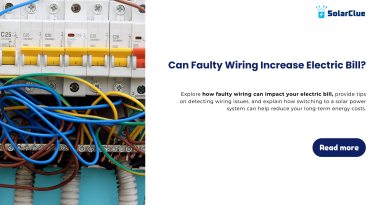Can You Charge An Electric Car With Solar Panels
As the push for sustainable living gains momentum, the integration of solar power with electric vehicle (EV) charging is emerging as a promising solution. This blog explores the feasibility of using solar panels to charge electric vehicles, delving into the required components, the economics, and the potential benefits of such setups.
Table of Contents
- 0.1 Understanding Electric Vehicle Battery Capacity and Charging Requirements
- 0.2 Calculating the Solar Panel Size Needed for Charging an Electric Car
- 0.3 The Role of Battery Storage in Electric Vehicle Charging
- 0.4 Grid-Tied vs. Off-Grid Solar Systems for Electric Vehicles
- 0.5 The Costs and Benefits of Using Solar Power for Electric Vehicle Charging
- 0.6 Government Incentives and Rebates for Solar-Powered Electric Vehicle Charging
- 0.7 Case Studies of Successful Solar-Powered Electric Vehicle Charging Setups
- 0.8 The Future of Solar Power and Electric Vehicles
- 0.9 Addressing Common Misconceptions About Using Solar Panels to Charge Electric Cars
- 1 FAQ
Understanding Electric Vehicle Battery Capacity and Charging Requirements
Electric vehicles come with varying battery capacities, typically ranging from 40 kWh for smaller cars to over 100 kWh for larger models or those with extended range. Understanding the energy requirements of your vehicle is crucial for designing an effective solar charging system.
Calculating the Solar Panel Size Needed for Charging an Electric Car
To determine the size of the solar panel system required, you must first know the average daily or monthly mileage and the efficiency of your EV.
- Daily Energy Needs: Calculate the kWh needed per day based on your daily driving distance and the car’s kWh per mile consumption.
- Solar System Size: Factor in the geographic location’s average sunlight hours to determine the system’s size to meet your EV’s charging needs.
The Role of Battery Storage in Electric Vehicle Charging
Battery storage systems play a pivotal role in bridging the gap between solar energy generation and usage, ensuring that power is available for EV charging during non-sunlight hours.
- Storage Capacity: The capacity should be large enough to store surplus solar energy generated during the day.
- Integration: Properly integrating the battery storage with your solar setup allows for an efficient and reliable charging process.
Grid-Tied vs. Off-Grid Solar Systems for Electric Vehicles
Choosing between a grid-tied and an off-grid system depends on your specific needs and location.
- Grid-Tied Systems: These systems are connected to the public electricity grid and can offer net metering benefits, allowing you to send excess power back to the grid.
- Off-Grid Systems: Completely independent from the grid, these systems require larger storage and management to ensure consistent availability.
The Costs and Benefits of Using Solar Power for Electric Vehicle Charging
While the initial setup cost can be high, the long-term savings on fuel and the environmental benefits make solar power a lucrative option for EV charging.
- Costs: Initial setup includes solar panels, charge controller, battery storage, and installation.
- Benefits: Reductions in electricity costs, independence from utility prices, and decreased carbon footprint.
Government Incentives and Rebates for Solar-Powered Electric Vehicle Charging
Many regions offer incentives like tax credits, rebates, and grants to encourage the adoption of solar power for EV charging, reducing the overall investment cost.
Case Studies of Successful Solar-Powered Electric Vehicle Charging Setups
Case studies highlight the practical applications and effectiveness of solar-powered EV charging, providing real-world insights into its viability.
The Future of Solar Power and Electric Vehicles
The continuous advancements in solar technology and electric vehicles suggest a promising future where these technologies are more integrated, efficient, and widely adopted.
Addressing Common Misconceptions About Using Solar Panels to Charge Electric Cars
Misconceptions such as “solar charging is too slow” or “it doesn’t work on cloudy days” can be debunked with proper information about system capabilities and technological advancements.
FAQ
Q1: How many solar panels are needed to charge an electric car?
A: The number of panels depends on your vehicle’s battery capacity and your daily mileage. Typically, a system ranging from 6 to 12 kW is sufficient for charging most EVs.
Q2: Can I charge my EV with solar power during cloudy days?
A: Yes, though solar panels are most effective in direct sunlight, they still generate electricity on cloudy days. Battery storage can also help smooth out supply issues.
Q3: Are there specific types of solar panels that are best for EV charging?
A: Monocrystalline solar panels are generally more efficient and thus preferred for residential setups where space might be limited.
Q4: What are the key considerations for setting up a solar charging station at home?
A: Key considerations include assessing your EV’s energy requirements, the solar potential of your location, available space, budget, and local regulations for grid integration.
Q5: How long does it take to charge an EV with solar power?
A: Charging time varies based on the solar system size and the EV’s battery capacity. With a sufficiently sized solar system and battery storage, it’s possible to charge an EV overnight.
By understanding these aspects and planning accordingly, solar power can effectively meet the charging needs of electric vehicles, providing a sustainable solution to fuel the cars of the future.


